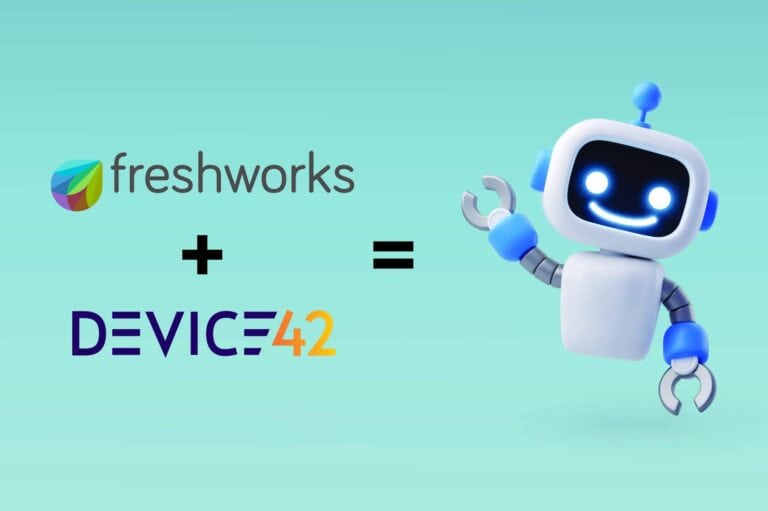Introduction to IT Solutions in Manufacturing
The manufacturing industry is rapidly evolving, with manufacturing companies embracing technology solutions and automation, driven by the need for efficiency and innovation.
Table of Contents
ToggleWith the advent of Industry 4.0, data analytics, 5G and IoT technologies, edge computing, AI, automation and integrated systems are driving a shift towards smart factory models aimed at enhancing the efficiency and productivity of manufacturing operations.
This digital transformation is revolutionizing the business of production; reducing waste, optimizing business processes, improving quality, enhancing supply chain management, and more.
This article will help you understand why adopting these IT technologies is crucial for your organization to maintain a competitive edge, improve productivity, and achieve excellence.

Key IT Solutions for Enhancing Manufacturing Operations
Companies involved in manufacturing can leverage many key IT solutions. Here are some of them:
Big Data & Operational Agility in Industry 4.0

The advent of big data has transformed manufacturing by providing insights that drive efficiency and innovation.
Using data analytics, manufacturers can gain detailed insights into every aspect of their operations, from supply chain logistics to production efficiency, enabling data-driven decisions that minimize disruptions and optimize agility.
Digital Transformation Strategies for the Manufacturing Industry

Digital transformation is revolutionizing processes in manufacturing, from product design to delivery.
These technologies streamline operations, reduce waste, and ensure that manufacturing plants are more responsive to the demands of the market.
Cloud Computing

Cloud services offer manufacturing businesses enhanced flexibility and scalability, allowing them to adapt to market changes more swiftly.
Remote access to data and applications ensures that decision-makers can stay informed and make critical decisions no matter where they are.
Cybersecurity and Disaster Recovery

In an era where cyber threats loom large, ensuring data security and business continuity is paramount.
IT solutions that focus on cybersecurity and robust recovery plans are essential for safeguarding manufacturing processes against potential breaches and minimizing downtime.
Tailored Tech: Revolutionizing Manufacturing Companies with IT Solutions
In industry, distinct sectors demand specific IT solutions for efficiency, quality, and compliance.
Automotive, Electronics, and Food & Beverage stand out for their global impact and quick tech adoption, highlighting the industry’s move towards digital transformation.
Automotive Manufacturing

The automotive industry is a cornerstone of the global manufacturing sector, known for its high-volume production and complex supply chains. Key IT solutions for this industry include:
Supply Chain Management: Advanced analytics for real-time tracking and optimization of goods and information movements.
Inventory Tracking: RFID and IoT-based systems for accurate inventory management.
Quality Control: Machine learning algorithms and predictive analytics for preventing manufacturing defects.
Compliance Management: Software solutions to ensure adherence to international standards and regulations.
Electronics Manufacturing Supply Chain

As a rapidly evolving industry, electronics manufacturing demands agility and precision throughout the supply chain. IT solutions for this sector focus on:
Product Lifecycle Management (PLM): Systems that manage the entire lifecycle of a product from inception, through engineering design and manufacturing, to service and disposal.
Predictive Maintenance: Utilizing data analytics and AI to predict equipment failures before they occur, minimizing downtime.
Robotics and Automation: Integration of advanced robotics to improve production efficiency and worker safety.
Intellectual Property Protection: Solutions to safeguard sensitive designs and proprietary information.
Food & Beverage Manufacturing

Food and beverage manufacturing is subject to stringent quality standards and regulatory requirements, making specific IT solutions crucial for:
Quality Assurance: Systems that monitor and manage quality across all stages of production, ensuring compliance with health regulations.
Traceability: Blockchain and other technologies for tracking the origin, processing, and distribution of products for safety and assuring quality.
Demand Forecasting: Data analytics to predict market trends and adjust production accordingly.
Energy Management: Solutions to optimize energy use and reduce waste in production facilities.
By leveraging industry-specific IT solutions, companies in these top manufacturing sectors can address their unique challenges, streamlining operations and paving the way for innovation and growth.
The adoption of these technologies in a manufacturing plant not only enhances efficiency but also drives competitiveness in an increasingly digital world.
Using Managed IT Services in Manufacturing

The resilience of any manufacturing business depends on stable IT systems. Any unplanned downtime in your production systems will soon hit your bottom line.
Leading manufacturers have dealt with this challenge by using managed IT services as a fundamental part of their model.
These enterprise systems offer manufacturing companies a comprehensive 24/7 support system and technology solutions that include network monitoring, solution scaling, support for legacy systems, IT security, and more.
Using managed IT services, companies can ensure their operations run smoothly around the clock, pre-empting issues before they escalate into costly downtime and affect customers.
Managed IT services extend beyond mere troubleshooting; they play a crucial role in refining business operations and business processes.
Top-5 Emerging Technologies in Manufacturing IT Solutions
The manufacturing industry is on the brink of a technological revolution, driven by the emergence of innovative technologies.
These advancements promise to enhance efficiency, reduce costs, and streamline operations, marking a significant leap towards the future of manufacturing.
1. Hyper-Converged Infrastructure (HCI)

HCI combines compute, storage, and networking into a single system, simplifying data center management.
This technology, exemplified by companies like Nutanix, reduces costs and accelerates the deployment of new applications, making it a cornerstone for modern manufacturing facilities seeking agility and efficiency.
2. Internet of Things (IoT)

IoT technology connects machines, devices, and systems across the manufacturing floor, enabling real-time data collection and analysis.
This interconnectedness facilitates predictive maintenance, optimizes production processes, and enhances supply chain visibility, driving significant improvements in operational efficiency.
3. Artificial Intelligence (AI) and Machine Learning

AI and machine learning technologies are transforming manufacturing by analyzing vast amounts of data to identify patterns, predict outcomes, and automate decision-making.
From quality control to demand forecasting, these tools offer unprecedented insights, enabling manufacturers to make more informed decisions and innovate faster.
4. Virtualization and Disaster Recovery

Virtualization technology creates digital versions of physical IT infrastructure, offering flexibility and reducing hardware dependency.
Coupled with advanced disaster recovery solutions, it ensures manufacturing operations can continue seamlessly, even during unexpected disruptions, safeguarding business continuity and data integrity.
5. 3D Printing/Additive Manufacturing

3D printing is revolutionizing product design and manufacturing by allowing for rapid prototyping, custom manufacturing, and complex geometries that were previously impossible or too costly to produce.
This technology reduces time to market and opens new avenues for innovation and customization in manufacturing.
Benefits of IT Solutions for Manufacturing

The adoption of IT solutions in manufacturing unlocks numerous advantages, crucial for modernizing operations and staying competitive:
Cost Reduction
- Streamlines processes to lower operational expenses.
- Optimizes resource utilization, reducing waste.

Efficiency Improvements
- Automates repetitive tasks, freeing up valuable human resources.
- Enhances production line speeds and accuracy.

Quality Enhancements
- Implements rigorous monitoring and control, ensuring product consistency.
- Utilizes advanced analytics for continuous process improvement.

Innovation Capability
- Facilitates the development of new products and services.
- Enables rapid prototyping and testing through digital tools.

Operational Agility
- Improves responsiveness to market changes and customer demands.
- Supports flexible manufacturing strategies like just-in-time (JIT) production.

Competitive Advantage
- Data analytics and AI for predictive maintenance reduce downtime.
- Ensures production lines operate at peak efficiency, maximizing output.

Market Responsiveness
- Allows for quick adaptation to consumer needs and trends.
- Supports global supply chain management for timely delivery.
Choosing the Right IT Partner for Manufacturing
Selecting someone to provide IT services for manufacturing is a critical decision for any company. The right partner brings not just technological expertise but also a deep understanding of the manufacturing sector’s unique challenges and needs.
When evaluating potential partners, manufacturing firms should look for vendor agnosticism, ensuring that the solutions proposed are the best fit for their specific requirements, rather than being limited to a single vendor’s offerings.
Industry-specific experience is another crucial factor. A partner with a proven track record in the manufacturing industry will be better equipped to provide tailored solutions that address the specific operational, regulatory, and technological challenges facing manufacturing companies.
Conclusion
IT solutions are crucial for Industry 4.0 driving innovation, efficiency, and competitiveness.

Digital transformation unlocks substantial benefits, helping manufacturers overcome modern challenges and thrive.
Effective IT strategies and partnerships open limitless opportunities for growth and innovation, ensuring success in the digital age.





